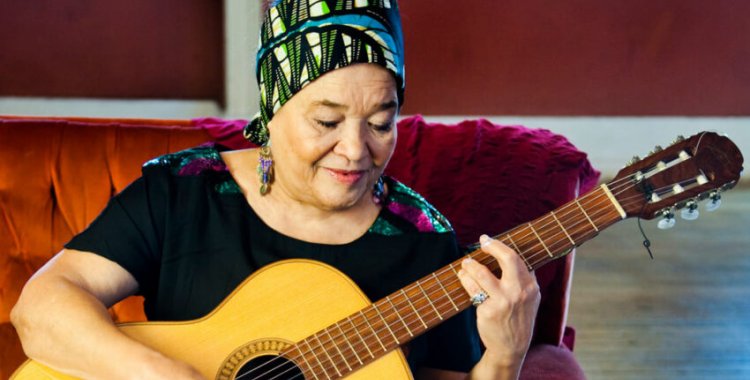Garda, who released her first album in 1957, was currently living in Vilamoura, in the Algarve, “distant from artistic life” and “suffered a stroke on [past] Saturday”, having died on Monday morning, according to the same source.
Garda's first album was released in Portugal in 2011, more than 50 years after she recorded her first EP, for the label Valentim de Carvalho (VC).
VC's record editor, Francisco Vasconcelos, told the Lusa agency at the time that Garda's album constitutes the “finding of a missing link in Angolan popular music”.
Garda, by her registered name Ildgarda Oliveira, “encapsulated in a time before pop, author singing, electronics; it hasn't changed, hence her record is so precious,” she said.
“Garda's imagination is that of Latin American music, samba, Brazilian and Italian song. Ângela Maria is one of her heroines ”, assured Vasconcelos then.
“Garda was a star in Angola, and she is a star, you can see that today. She has a strong presence and a life story that makes her unsurpassable”, underlined the head of VC, in 2011.
At the time, shortly before his 80th birthday, Garda returned to the studio to record what was his first and only album, which included several songs by himself, but also by Dolores Duran, Mingo Rangel, Herivelto Martins, and by some authors. that were lost in the memory of time, identified as “Reserved rights”.
Francisco Vasconcelos stated that Garda herself, as a creator, “sometimes mixes the songs and the lyrics, some lyrics that are from other songs and that she adapts and so on”.
The singer and songwriter remained unknown to the general public for more than 50 years, and “passed by on the side of a career like that of Duo Ouro Negro”, despite being the first Angolan woman to record an album.
Garda performed in Portugal in 1957, at a party held by the Espírito Santo family, in Cascais, where Marino Marini was the headliner, and “it was exciting”, said Vasconcelos.
“Someone from VC was at that party and invited her to record, after which we lost track of her. The record company did not yet have offices in Angola and she continued to be a star in Angola,” she said.
The publisher found "the star" at the insistence of an architect fascinated by Garda's voice and musical sensibility.
“An architect came to us, saying that the lady had recorded an album at Valentim [de Carvalho]. We had no idea it existed, and she herself had some models that we heard, and then went to find this missing link”, said Vasconcelos.
On the occasion, Francisco Vasconcelos referred to the “challenge” of recording with Garda as he was “very demanding” from a musical point of view.
Recording took about three years, with a change of producer early in the project. In the end, Francisco Vasconcelos assured: “It was worth it. Garda touched each of those who participated and it was fascinating”.
Garda performed regularly in 2011 at parties and bars, and had planned a very different career, that of a violinist, but she was pointed out as “a natural star without ever having cultivated it”.
Garda began her musical studies in Luanda, and from an early age she began performing live together with her father and brothers, before settling in Lisbon.







